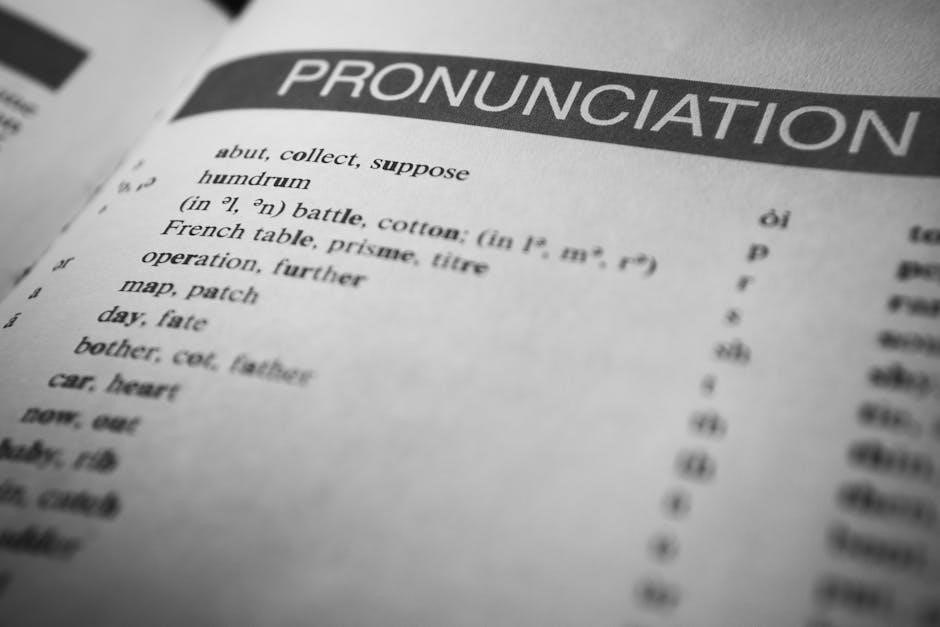
The Statutory Declaration of Common-Law Union is a legal affidavit required to confirm a genuine relationship for Canadian immigration purposes, ensuring compliance with immigration laws and regulations.
Purpose of the Statutory Declaration
The Statutory Declaration of Common-Law Union serves as a legal affidavit to formally confirm the existence of a genuine common-law relationship for immigration purposes. Its primary purpose is to provide evidence of a committed, continuous relationship, which is essential for sponsorship applications or permanent residency claims under Canadian immigration laws. Unlike marriage certificates, there is no formal documentation for common-law unions, making this declaration a critical tool to validate the partnership. By signing under oath, both parties affirm the truthfulness of their relationship, ensuring compliance with legal standards. This document is indispensable for demonstrating eligibility in immigration processes, as it carries the weight of a sworn statement, with penalties for false claims. It ensures transparency and authenticity in the application process.
Importance in Canadian Immigration Context
The Statutory Declaration of Common-Law Union holds significant importance in Canadian immigration processes, as it provides formal proof of a genuine relationship for sponsorship or residency applications. Since common-law unions lack formal certification, this declaration is essential for validating the partnership under immigration laws. It is a sworn document, carrying legal weight, and is required by Immigration, Refugees and Citizenship Canada (IRCC) to assess eligibility for immigration benefits. The declaration ensures that the relationship meets the criteria for sponsorship, facilitating the reunification of families. Its importance lies in its ability to provide a credible and legally binding affirmation of the relationship, which is critical for the successful processing of immigration applications.
Legal Implications and Consequences of False Statements
Making false statements in a Statutory Declaration of Common-Law Union is a criminal offence under Canadian law. This document carries the same legal weight as testimony made under oath, and any misrepresentation can lead to severe consequences. Individuals who provide false information may face criminal charges, fines, and other penalties. Additionally, such actions can result in the rejection of the immigration application and potential bans on future applications. The legal system treats these declarations with utmost seriousness, emphasizing the importance of honesty and accuracy. Failure to comply with the truth can undermine the integrity of the immigration process and jeopardize the applicant’s future opportunities in Canada.

Eligibility Criteria for a Common-Law Union in Canada
A common-law union in Canada requires cohabitation for at least one continuous year, demonstrating financial interdependence, and public recognition of the relationship as committed partners.
Definition of a Common-Law Union
A common-law union is defined as a relationship between two individuals who have cohabited continuously for at least one year, sharing financial responsibilities and public acknowledgment of their partnership, without formal marriage.
Duration of Cohabitation Requirement
In Canada, a common-law union requires cohabitation for at least one year continuously. This duration is essential to establish the relationship’s legitimacy for immigration purposes. The cohabitation must be uninterrupted, though short, temporary separations for work or family reasons may be allowable. The continuous nature of the relationship is critical, as it demonstrates commitment and stability. Documentation, such as shared bills or joint leases, can help verify the cohabitation period. Meeting this requirement ensures the relationship is recognized under Canadian immigration laws, making it a cornerstone for sponsoring a partner or applying for residency based on a common-law relationship.

Documentation Requirements for Proof of Relationship
When establishing a common-law relationship, it is crucial to provide substantial documentation to prove the union’s legitimacy. Key documents include joint residential leases, mortgage agreements, or property deeds. Additionally, shared financial commitments, such as joint bank accounts, credit cards, or loan agreements, are essential. Utility bills, tax filings, and insurance policies in both names can also serve as evidence. Public recognition, like social media posts or joint memberships, may further support the claim. These documents collectively demonstrate cohabitation, financial interdependence, and mutual commitment, which are critical for verifying the relationship’s authenticity under Canadian immigration laws.

Required Documentation for the Statutory Declaration
The statutory declaration requires proof of cohabitation, joint financial commitments, and public recognition of the relationship to validate the common-law union under Canadian immigration laws.
Proof of Cohabitation
Proof of cohabitation is essential to validate a common-law union, requiring documents like joint leases, utility bills, or bank statements showing shared residency. These documents must cover at least one year, demonstrating continuous cohabitation. Additional evidence may include shared property ownership, mail addressed to both parties at the same address, or affidavits from third parties attesting to the relationship. All documents must be dated and consistent with the declaration, ensuring accuracy and authenticity. This evidence is critical for verifying the legitimacy of the relationship under Canadian immigration laws.
Joint Financial Commitments
Joint financial commitments are critical to demonstrating a common-law union, as they illustrate financial interdependence. Examples include shared bank accounts, joint loans, or credit cards. Documentation such as bank statements, loan agreements, or credit card records must be provided to show ongoing financial collaboration. Additionally, jointly owned property or investments further validate the relationship. These records should be dated and consistent with the declaration. Declarations made under the Canadian Income Tax Act, such as naming each other as beneficiaries, also strengthen the evidence. Such financial ties are essential for confirming the legitimacy and continuity of the relationship, aligning with immigration requirements for common-law partnerships in Canada. Accuracy and consistency in these documents are vital.
Public Recognition of the Relationship
Public recognition of the relationship is essential to validate a common-law union. This includes evidence that the couple presents themselves as partners in social, familial, and professional contexts. Documentation such as social media posts, joint memberships, or public announcements can serve as proof. Additionally, being acknowledged as a couple by friends, family, or employers strengthens the case. Including letters or statements from third parties, such as acquaintances or professionals, can also demonstrate public recognition. Furthermore, being listed as dependents in insurance policies, tax filings, or employee benefits further corroborates the relationship’s legitimacy. Such evidence helps establish the authenticity and societal acknowledgment of the partnership, aligning with immigration requirements for common-law unions in Canada.

Step-by-Step Guide to Completing the IMM 5409 Form
The IMM 5409 form guides individuals through declaring a common-law union for Canadian immigration. It involves downloading the form, filling it out accurately, and making a solemn declaration.
Downloading and Accessing the Form
To begin, the IMM 5409 form, or Statutory Declaration of Common-Law Union, can be downloaded from the official Immigration, Refugees and Citizenship Canada (IRCC) website. Ensure you access the form directly from the government portal to avoid outdated or incorrect versions; Once on the IRCC website, navigate to the section dedicated to family sponsorship or common-law relationships. Use the search function with keywords like “IMM 5409” or “Statutory Declaration of Common-Law Union” to locate the form quickly. After downloading the PDF version, save it to your device for easy access. Make sure you have Adobe Acrobat or a compatible viewer installed to open and print the document. Always verify the form’s version date to ensure compliance with current immigration requirements.
Section-by-Section Instructions for Completion
Complete the IMM 5409 form section by section, starting with the declarant’s personal information, including full name, date of birth, and contact details. Next, provide details about your common-law partner, such as their name, date of birth, and citizenship. Clearly state the duration of your relationship and the addresses where you have cohabited. Answer questions about joint financial commitments, such as shared bank accounts or property ownership. Include details about public recognition of your relationship, like joint utility bills or life insurance beneficiaries. Ensure all information is accurate and consistent with other submitted documents. Attach additional evidence, such as third-party affidavits, if required. Review each section carefully before proceeding to the next.
Solemn Declaration and Signature Requirements
The Statutory Declaration must be signed by both the sponsor and the common-law partner in the presence of a commissioner of oaths or a notary public. The declarant must solemnly declare that the information provided is true and complete, understanding that false statements carry legal consequences. The partner’s signature is also required, though they do not need to appear before the commissioner unless they are unable to sign independently. Ensure all signatures are dated and witnessed properly. The declaration’s solemn nature emphasizes the importance of accuracy and truthfulness, as it holds the same legal weight as testimony under oath. Proper execution is essential for the validity of the declaration.

Legal and Procedural Considerations
The statutory declaration holds legal weight, with false statements punishable under Canadian law. It ensures recognition of common-law unions across provinces, safeguarding partners’ rights and obligations.
Consequences of Providing False Information
Providing false information in a statutory declaration is a serious offense under Canadian law, potentially leading to criminal charges, fines, and immigration application refusal. Misrepresentation can result in a five-year ban on submitting future immigration applications. Both the sponsor and the common-law partner may face legal consequences, including loss of immigration privileges. The declaration’s solemn nature underscores the importance of honesty, as it carries the same weight as testimony under oath. Any discrepancies or intentional falsehoods can severely jeopardize the application process and future opportunities for both parties involved. Accuracy and truthfulness are paramount to avoid legal and immigration repercussions.
Legal Rights and Obligations of Common-Law Partners
In Canada, common-law partners are granted legal rights and obligations, recognizing their relationship as legitimate under federal and provincial laws. These rights include property entitlements, spousal support obligations, and inheritance rights, though specifics may vary by province. Both partners must act in good faith, maintaining financial and emotional commitments. The statutory declaration formalizes these rights, ensuring legal recognition for immigration and other purposes. However, obligations may extend beyond the relationship, such as potential child support or division of assets. Understanding these legal responsibilities is crucial for both partners to navigate their rights and duties effectively within the framework of Canadian law.
Recognition of Common-Law Unions Across Canadian Provinces
Common-law unions are recognized across all Canadian provinces, but the specific definitions and requirements may vary. While federal immigration laws acknowledge common-law relationships nationwide, provincial laws governing rights and obligations differ slightly. For instance, Alberta refers to such relationships as “adult interdependent partnerships,” while Quebec uses the term “common-law partnership.” Most provinces require at least one year of continuous cohabitation to establish a common-law union, though some may have additional evidentiary requirements. This variability underscores the importance of understanding the legal framework in your province. The statutory declaration serves as a uniform document to validate the relationship for immigration and legal purposes, ensuring consistency across jurisdictions. Provincial recognition is crucial for accessing rights and benefits tied to common-law unions.

Evidence Beyond the Statutory Declaration
Beyond the statutory declaration, additional evidence like joint financial statements, co-signed agreements, and third-party affidavits can strengthen the validation of a common-law relationship for immigration purposes.
Additional Documentation to Support the Declaration
To strengthen your application, additional documentation beyond the statutory declaration is essential. This may include joint financial statements, property ownership records, tax filings, and life insurance policies naming your partner as a beneficiary. Providing proof of shared responsibilities, such as utility bills or rental agreements, can also validate your relationship. Including third-party affidavits or letters from friends, family, or employers further corroborates your partnership. Ensuring consistency in dates, addresses, and relationship details across all documents is crucial for a seamless review process. These supplementary materials collectively establish a comprehensive and credible record of your common-law union, aligning with immigration requirements and expectations.
Role of Third-Party Affidavits or Letters
Third-party affidavits or letters play a significant role in corroborating the legitimacy of a common-law union. These documents, provided by neutral individuals such as friends, family, or employers, offer independent verification of the relationship. They should include details about the duration of the relationship, the nature of the couple’s interactions, and any joint responsibilities or public acknowledgments of the partnership. Such letters add credibility to the application by providing external validation. It is essential that these affidavits are detailed, specific, and consistent with the information presented in the statutory declaration. They serve as supplementary evidence, strengthening the overall case and demonstrating the genuineness of the common-law union to immigration authorities.

Importance of Consistency in All Submitted Documents
Consistency across all submitted documents is paramount when applying for a Statutory Declaration of Common-Law Union. Any discrepancies in the information provided can lead to delays or rejection of the application. It is crucial that details such as dates, addresses, and descriptions of the relationship align perfectly in the statutory declaration, proof of cohabitation, financial records, and third-party affidavits. Inconsistent information may raise suspicions of misrepresentation, potentially jeopardizing the application. Therefore, thorough review and cross-verification of all documents are essential to ensure accuracy and avoid complications. This attention to detail underscores the importance of presenting a cohesive and truthful representation of the relationship.

Submission and Processing of the Declaration
The completed Statutory Declaration of Common-Law Union must be submitted alongside other required documents to the designated IRCC office. Processing times vary, and applicants can track their application status online or through provided channels. Ensuring all documents are accurate and complete is vital to avoid delays. Following submission, regular follow-up is recommended to confirm receipt and progress. This step is critical in facilitating a smooth review process for the common-law union recognition.
Where and How to Submit the Completed Form
The completed Statutory Declaration of Common-Law Union (IMM 5409) must be submitted to the designated IRCC office as specified in the application instructions. Applicants can typically submit the form via mail or through an online portal, depending on the application type. Ensure the declaration is notarized and accompanied by all required supporting documents. Include a cover letter with the applicant’s Unique Client Identifier (UCI), if applicable, and clearly label the envelope with the program under which the application is being submitted. Always verify the most recent mailing address on the IRCC website to avoid delays. Proper submission ensures timely processing of the immigration application.
Processing Times and Follow-Up Procedures
Processing times for the Statutory Declaration of Common-Law Union vary depending on the application type and workload of the IRCC office. Applicants can check estimated processing times on the IRCC website. Once submitted, applications are reviewed for completeness, and delays may occur if additional documentation is required. Applicants can track their application status through their online account or by contacting IRCC via web form or phone if processing exceeds expected timelines. Ensure to retain the submission confirmation and follow up only if there are significant delays. Timely follow-ups help ensure the application remains on track without causing unnecessary delays.
Importance of Accuracy and Completeness
Accuracy and completeness are crucial when completing the Statutory Declaration of Common-Law Union. Any errors or omissions can lead to delays or rejection of the application. Providing truthful and detailed information ensures the declaration’s validity and strengthens the credibility of the relationship. Incomplete or inaccurate information may result in additional requests for documentation, prolonging processing times. It is essential to double-check all details, such as dates, addresses, and joint commitments, before submission. This attention to detail helps maintain the integrity of the legal process and demonstrates the genuine nature of the relationship.

Common Mistakes to Avoid
Incomplete or inaccurate information, failure to sign or witness the declaration properly, and neglecting to include required supporting documents are common errors that can delay or invalidate the process.
Incomplete or Inaccurate Information
One of the most frequent errors in completing the Statutory Declaration of Common-Law Union is providing incomplete or inaccurate information. This can lead to delays or refusal of the application. It is essential to carefully review each section of the form to ensure all details are accurate and complete.
To avoid this mistake, applicants should double-check personal information, relationship details, and supporting documentation. Ensuring consistency across all submitted documents is crucial. Inaccuracies may result in additional requests for evidence or processing setbacks, emphasizing the importance of precision and thoroughness in the application process.
Failure to Sign or Witness the Declaration Properly
Failing to sign or witness the Statutory Declaration of Common-Law Union properly is a critical error that can invalidate the document. Both the sponsor and the common-law partner must sign the declaration, and it must be witnessed by an authorized official, such as a notary public or commissioner of oaths. Unsigned or improperly witnessed declarations are deemed incomplete and may result in processing delays or refusal of the application. Ensure all signatures are included and that the witness meets the legal requirements. Proper execution is essential for the document to hold legal weight in the immigration process. Always double-check the signature and witnessing sections before submission to avoid such issues.
Neglecting to Include Required Supporting Documents
Neglecting to include required supporting documents with the Statutory Declaration of Common-Law Union is a common mistake that can lead to delays or refusal of the application. Supporting documents, such as joint financial statements, leases, or public recognition of the relationship, are essential to validate the declaration. Failing to provide these materials may result in the immigration authorities questioning the legitimacy of the relationship. Ensure all relevant documentation, including proof of cohabitation, joint financial commitments, and public acknowledgment, is attached. Missing documents can significantly hinder the processing of the application, so it is crucial to thoroughly review the checklist and include all necessary evidence to avoid complications.
Completing the Statutory Declaration of Common-Law Union accurately and honestly is vital for a successful immigration application. Ensure all requirements are met to avoid delays or rejection.
The Statutory Declaration of Common-Law Union is a critical document for proving a common-law relationship in Canadian immigration processes. It must be completed truthfully, as false statements carry legal consequences. Both partners must sign the declaration, and it is essential for sponsorship applications. The document requires detailed information about the relationship, including cohabitation, financial commitments, and public recognition. Accuracy and completeness are vital to avoid delays or rejection. This declaration serves as a formal confirmation of the relationship’s legitimacy, ensuring compliance with immigration regulations. Proper completion and submission of the form are essential for a successful application. Always seek legal advice if unsure about any aspect of the process.
Final Tips for a Successful Application
To ensure a successful application, carefully review the Statutory Declaration of Common-Law Union for accuracy and completeness. Verify all personal and relationship details, as errors can lead to delays or rejection. Ensure both partners sign the declaration in the presence of a authorized official. Submit all required supporting documents, such as proof of cohabitation and joint financial commitments, to strengthen your case. Seek legal advice if unsure about any aspect of the process. Finally, proofread the entire application before submission to avoid any oversight. A well-prepared and truthful declaration significantly improves the chances of a positive outcome in your immigration journey.




